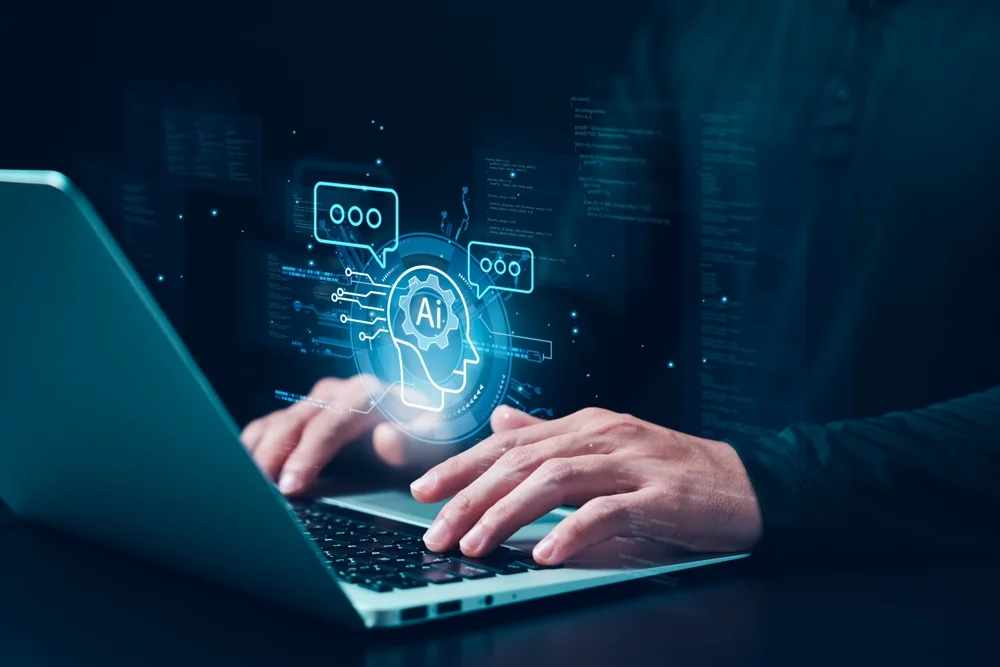Tech
6 Common Misconceptions About AI-Powered SOAP Notes

In recent years, Artificial Intelligence (AI) has made significant inroads into the healthcare industry, revolutionizing various aspects of patient care. One of the areas where AI has had a profound impact is in the creation of SOAP (Subjective, Objective, Assessment, and Plan) notes. SOAP notes are an essential part of medical documentation, aiding healthcare providers in maintaining accurate and comprehensive patient records. However, despite the clear benefits of AI-powered SOAP notes, there are still some common misconceptions about their role and capabilities. It’s time to debunk the six most common misconceptions — and to shed light on the possibilities.
Table of Contents
Misconception #1: AI-Powered SOAP Notes Are Replacing Human Healthcare Providers
One of the most prevalent misconceptions is that AI-powered SOAP notes are designed to replace human healthcare providers. In reality, AI is intended to assist and enhance the work of healthcare professionals, not replace them. AI can help with data entry, organization, and analysis. This allows medical staff to focus more on direct patient care. Medical professionals can now have more time to actually listen to patients. Indeed, SOAP notes serve as a valuable tool that complements the skills and expertise of healthcare providers rather than rendering them obsolete.
Misconception #2: AI-Powered SOAP Notes Lack Accuracy
Another common misconception is that AI-powered SOAP notes are prone to errors and inaccuracies. While no technology is flawless, AI-powered SOAP notes have demonstrated impressive accuracy in various clinical settings. They can process vast amounts of patient data, identify patterns, and generate detailed notes with a high degree of precision. In fact, AI can significantly reduce the risk of human error in note-taking and data interpretation. Again, this can free up doctors and allow them to spend more time with patients.
Misconception #3: AI-Powered SOAP Notes Are Expensive to Implement
Some healthcare organizations are hesitant to adopt AI-powered SOAP notes due to the belief that the technology is prohibitively expensive and complex to integrate into existing systems. While there are initial costs involved, the long-term benefits, such as increased efficiency, reduced administrative burden, and improved patient care, often outweigh the initial investment. Additionally, many AI-powered SOAP note solutions are designed to be user-friendly and easily integrated into existing electronic health record (EHR) systems.
Misconception #4: AI-Powered SOAP Notes Compromise Patient Privacy
Privacy concerns are another common misconception associated with AI-powered SOAP notes. Many worry that sensitive patient information may be compromised when utilizing AI technology. However, reputable AI-powered SOAP note systems are designed with robust security measures to protect patient data. They adhere to strict healthcare data regulations and encryption standards to ensure that patient privacy is maintained. Today’s medical professionals know how to write a detailed soap note while maintaining patient privacy.
Misconception #5: AI-Powered SOAP Notes Are One-Size-Fits-All
Some healthcare professionals mistakenly believe that AI-powered SOAP notes offer a one-size-fits-all solution. In reality, AI-powered SOAP note systems can be customized and tailored to the specific needs of different healthcare practices. The algorithms can be trained to adapt to the unique preferences and requirements of healthcare providers. This ensures that the generated notes align with individual styles and patient populations.
Misconception #6: AI-Powered SOAP Notes Are Rigid
Another common misconception is that AI-powered SOAP notes lack flexibility and are too rigid in their approach. This notion often stems from the fear that using AI will result in standardized, cookie-cutter notes. However, AI-powered SOAP note systems can be configured to offer flexibility and accommodate various clinical scenarios. They can be programmed to recognize and adapt to the intricacies of different medical specialties. This encourages the creation of highly relevant and context-specific notes.
Conclusion
By dispelling common misconceptions, healthcare providers and organizations can better understand the capabilities and potential of AI-powered SOAP notes. Rather than replacing human healthcare providers, AI serves as a supportive tool, contributing to the overall quality and effectiveness of healthcare services. As AI technology continues to evolve, it is essential for the healthcare community to embrace it responsibly and leverage its benefits for the betterment of patient care and the industry as a whole.
To know more about keep reading Lemony Blog

-

 Business3 years ago
Business3 years agoHow to Do Long-Distance Moves with Children
-

 Travel2 years ago
Travel2 years agoQuick Guide: Moving To Santa Rosa?
-

 Real Estate3 years ago
Real Estate3 years agoWhy Dubai Festival City is a Great Neighbourhood for Young Learners
-

 Business3 years ago
Business3 years agoIs Guest Posting a Good Inbound Marketing Strategy?
-

 Business1 year ago
Business1 year agoThe Ultimate Guide To Thriving In Your Printing Franchise
-

 Business1 year ago
Business1 year agoExploring The Benefits And Challenges Of Restaurant Franchising
-

 Tech3 years ago
Tech3 years agoCyber Table That Will Change Your Life
-

 Lifestyle1 year ago
Lifestyle1 year agoDallas’ Hidden Gems: 6 Must-Try Restaurants Off The Beaten Path!









Recent Comments